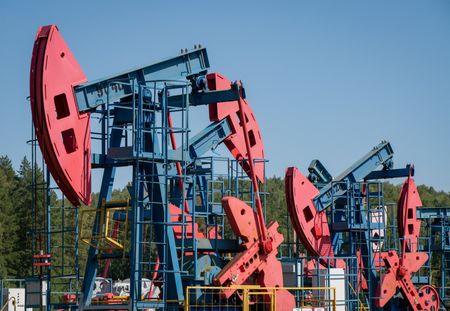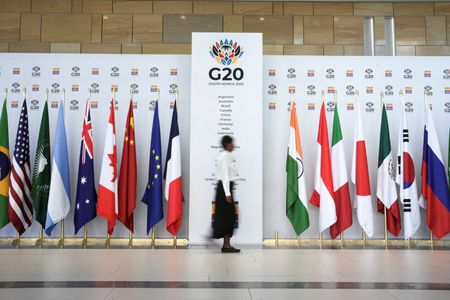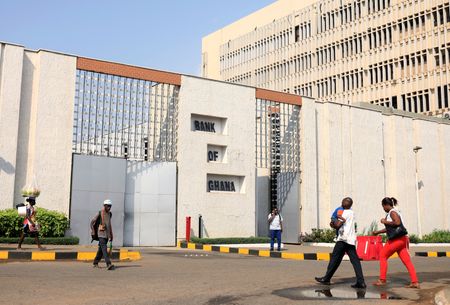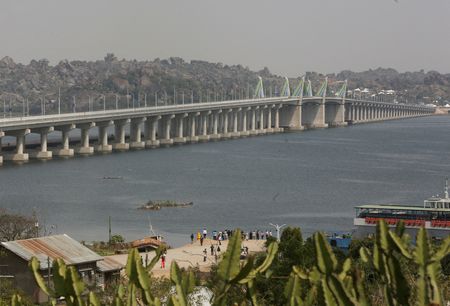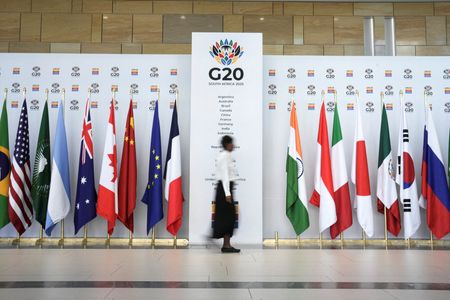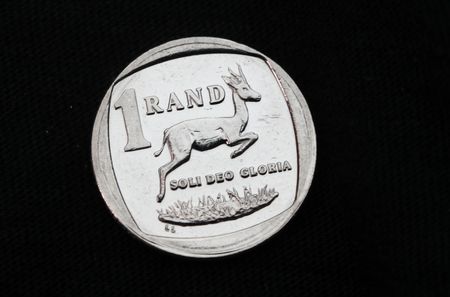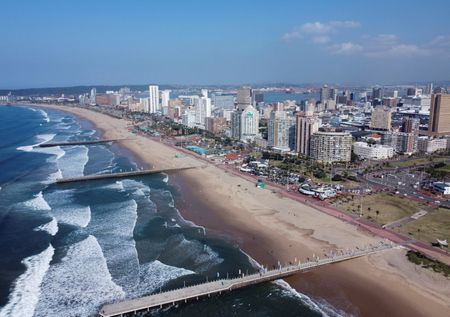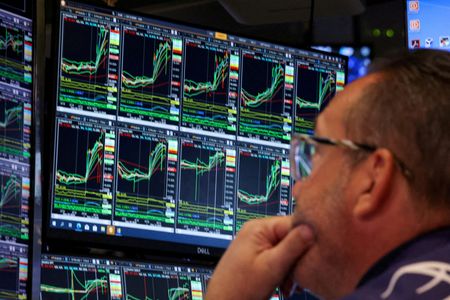By Robert Harvey
LONDON (Reuters) -Crude oil futures rose on Friday while gasoil futures jumped to a 17-month high as investors weighed new European Union sanctions against Russia.
Brent crude futures climbed 68 cents, or 1%, to $70.20 a barrel by 1327 GMT. U.S. West Texas Intermediate crude futures gained 81 cents, or 1.2%, to $68.35.
The premium on low-sulphur gasoil futures to Brent crude was up $3.50 at $27.27, the almost 15% increase lifting the spread to its highest since February 2024.
The EU reached an agreement on an 18th sanctions package against Russia over its war in Ukraine, which includes measures aimed at dealing further blows to Russia’s oil and energy industries.
Its latest sanctions package will lower the G7’s price cap for buying Russian crude oil to $47.6 a barrel, diplomats told Reuters.
The EU will also no longer import any petroleum products made from Russian crude, though the ban will not apply to imports from Norway, Britain, the U.S., Canada and Switzerland, EU diplomats said.
EU foreign policy chief Kaja Kallas also said on X that the EU has designated the largest Rosneft oil refinery in India as part of the measures.
Higher gasoil futures could be driven by the EU ban on fuel imports derived from Russian crude, UBS analyst Giovanni Staunovo said, as well as low inventories in northwest Europe.
The EU has imported about 479,000 barrels per day of refined fuel from India and Turkey so far this year, the majority of which was diesel, gasoil, jet fuel and fuel oil, according to data from analytics business Kpler.
India is the biggest importer of Russian crude while Turkey is the third biggest, Kpler data shows.
Europe produces less diesel and jet fuel than it consumes, making it reliant on imports from other regions.
“This shows the market fears the loss of diesel supply into Europe, as India had been a source of barrels,” said Rystad Energy’s vice president of oil markets, Janiv Shah.
Investors were considering the potential impact of the price cap change and vessel designations on crude markets.
They are also awaiting news from the U.S. on possible further sanctions after President Donald Trump this week threatened sanctions on buyers of Russian exports unless Moscow agrees a peace deal in 50 days.
“Ultimately, it is now a matter of waiting for possible major changes in U.S. sanctions and tariff policy,” Commerzbank analysts said in a note.
The U.S. has not backed Europe on the latest sanctions package, leaving the EU with limited power to enforce the measures.
“We expect limited impact from the lower price cap and tanker sanctions; landed prices for diesel in Europe could increase somewhat due to larger logistics issues to get products into Europe, but we think enforcement challenges limit the impact on flows,” said BNP Paribas analyst Aldo Spanjer.
Prices could also have received support after Reuters reported that a restart of Iraq’s Kurdish oil exports is not imminent despite Iraq’s federal government saying on Thursday that shipments would resume immediately.
(Reporting by Robert Harvey and Enes Tunagur in London and Siyi Liu in SingaporeEditing by Emelia Sithole-Matarise and David Goodman)

